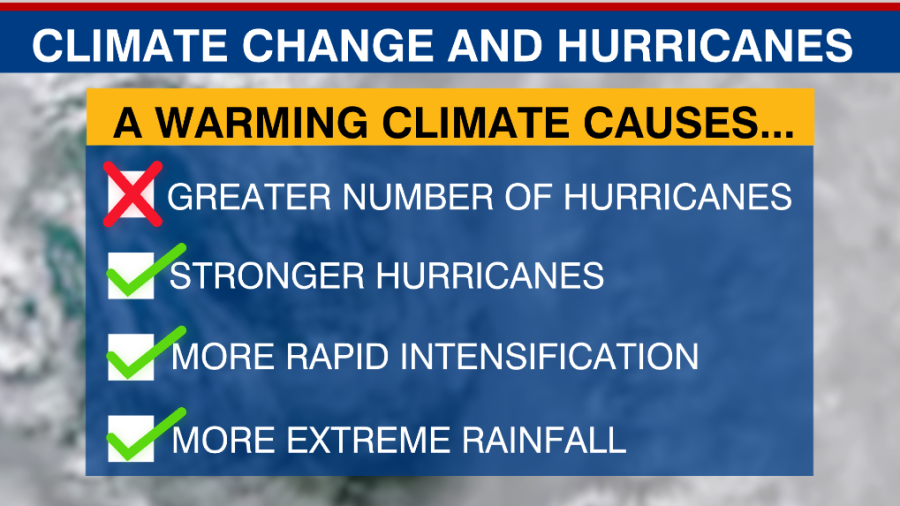TAMPA, Fla. (WFLA) — When monster hurricanes like Ian come ashore, the inevitable question always comes up — did climate change cause this? The simple answer to the question is no. Climate change does not cause weather, and strong hurricanes have been around since the dawn of time.
window. loadAnvato({“mcp”:”LIN”,”width”:”100%”,”height”:”100%”,”video”:”8057035″,”autoplay”:false,”expect_preroll”:true,”pInstance”:”p1″,”plugins”:{“comscore”:{“clientId”:”6036439″,”c3″:”wfla. com”,”version”:”5.
2. 0″,”useDerivedMetadata”:true,”mapping”:{“c3″:”wfla. com”,”ns_st_st”:”wfla”,”ns_st_pu”:”Nexstar”,”ns_st_ge”:”News,News,News,Local News,Video”,”cs_ucfr”:””}},”dfp”:{“adTagUrl”:”https://pubads.
g. doubleclick. net/gampad/ads?sz=1×1000&iu=/5678/mg.
wfla/news/local_news/landing&impl=s&gdfp_req=1&env=vp&output=vmap&vid=short_onecue&unviewed_position_start=1&ad_rule=1&description_url=https://www. wfla. com/news/local-news/feed/&cust_params=vid%3D8057035%26pers_cid%3Dunknown%26vidcat%3D/news/local_news%26bob_ck%3D[bob_ck_val]%26d_code%3D1%26pagetype%3Dsubindex%26hlmeta%3Dlocal%20news”},”nielsen”:{“apid”:”PF6F249F0-D03A-4863-9CDC-A1A9A1FC2315″,”sfcode”:”dcr”,”type”:”dcr”,”apn”:”Anvato”,”environment”:”production”,”useDerivedMetadata”:true,”mapping”:{“adloadtype”:2,”adModel”:2}},”segmentCustom”:{“script”:”https://segment.
psg. nexstardigital. net/anvato.
js”,”writeKey”:”r8ek1VmgcKfFR0e3ybLT12UdNDdp9UjA”,”pluginsLoadingTimeout”:12}},”expectPrerollTimeout”:8,”accessKey”:”XEaYoy88zvleku6RWLF7Fjpa9Dyj8BPN”,”token”:”eyJ0eXAiOiJKV1QiLCJhbGciOiJIUzI1NiJ9. eyJ2aWQiOiI4MDU3MDM1IiwiaXNzIjoiWEVhWW95ODh6dmxla3U2UldMRjdGanBhOUR5ajhCUE4iLCJleHAiOjE2NjUxNzIzMzh9. a5TMGGWKJKDi5u7b7NkYmELP6WQyKkq-lDW-GMPW-Gg”,”nxs”:{“mp4Url”:”https://h104216-gcdn.
mp. lura. live/1/938770/390/22/10/07/8057035/8057035_5F6A003704EABB5BAEF8AC9AFF97D8FF_221007_8057035_Hurricane_Ian_and_Climate_Change_3000.
mp4″,”enableFloatingPlayer”:true},”disableMutedAutoplay”:false,”recommendations”:false,”expectPreroll”:true,”titleVisible”:true,”pauseOnClick”:true,”trackTimePeriod”:60,”isPermutiveEnabled”:true}); But there is a lot of research on how climate change may be influencing hurricanes. So, let’s break it down one by one. Does a warmer climate cause more hurricanes? You may be surprised to hear the science says the answer is no.
The numbers are actually going down. A study released early this summer found that since the 1800s, the annual storm number has gone down. That decline is mostly in weak storms.
In recent years, there has been a spike in storm number, after a lull in the 1970s and 80s. But a fascinating NOAA study this spring found that decreased air pollution over the Atlantic is responsible for that recent spike. Can climate change make storms stronger? The answer to this one is yes.
The latest international climate report states that it is likely the global proportion of major hurricanes has increased in the past four decades and the proportion of intense tropical cyclones will continue to increase with increasing global warming. That’s because warmer water provides more fuel. In the strongest storms, for each degree warmer the ocean gets, a storm can be ~10% stronger.
Tropical oceans have warmed about 2 degrees, so intense hurricanes now have the potential to be about 15 mph stronger. Are warming waters causing storms to rapidly intensify? Here the answer also seems to be yes. Over the past six years, all landfalling major hurricanes in the Gulf of Mexico have intensified right before landfall, and five have intensified rapidly.
That’s rare and not likely coincidental. Rapid intensification can cause big problems because it catches people off guard. This happened in Hurricane Ian when wind speeds jumped 35 mph in just three hours right before landfall.
The scientific scientific consensus says that rapid intensification has increased over the past few decades and that will likely continue into the future. What about more rainfall? This is a clear yes. The most direct connection between hurricanes and climate change is extreme rainfall because warmer air holds more moisture – 8% for every 2 degrees F of warming.
But this relationship is boosted in strong tropical systems because they are efficient at moisture convergence and the excess moisture/heat provides more energy for stronger systems/higher rain rates. As Hurricane Ian sliced through Florida, it dumped 15 to 20 inches of rain from North Port to Lake Wales – a one-in-1,000-year rain event for our area. A rapid attribution study has already found that warming increased Ian’s rainfall by about 10%.
For Hurricane Harvey in Texas, that number is estimated to be over 30%. .
From: wfla
URL: https://www.wfla.com/weather/climate-classroom/climate-classroom-is-climate-change-impacting-hurricanes/



